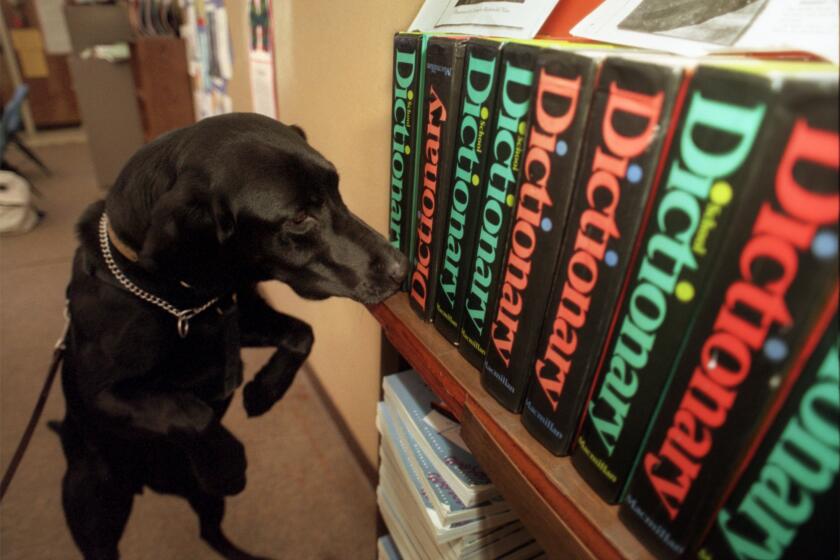A Word, Please: A look at ‘got,’ one of the weirdest words in the English language

- Share via
I don’t get “got.” It’s a weird little word. Very weird. It has some odd properties and more than its fair share of controversies.
“I’ve got a lot of friends” is a good example. It’s a shortened way to say, “I have got a lot of friends,” which is a longer way to say, “I have a lot of friends.” Weird. You could argue that “got” is unnecessary here. Or you could argue that it brings something unique to the table, doubling down on the idea of having friends. It adds oomph. You would be right either way.
But dig into the grammar and things get even weirder. The “have” in “I have got,” or its contracted form “’ve,” turns basic grammar on its head.
Normally, we use “have” plus a participle like “eaten” or “known” to put events in the past. “No dinner for me, thanks. I’ve eaten.” “I have known him for years.”
But “I have got a lot of friends” does not put the event in the past. The “have,” whether contracted or not, isn’t working as an auxiliary verb the way it is in “I have eaten” to suggest past action. Instead, “I’ve got a lot of friends” is solidly in the present, just like “I have a lot of friends.”
This dynamic is so unusual that it gets special mention in Merriam-Webster’s dictionary, which notes that sometimes when “got” means “have,” it’s present tense even though it’s not structured like present tense. In other words, “got” gets its own grammar rules.
Grammar expert June Casagrande isn’t certain why expressions the dictionary says are wrong are becoming more popular in published books.
There’s also the issue of “got” vs. “gotten.” Which should you use: “I have gotten used to waking up early” or “I have got used to waking up early”? The answer probably won’t surprise you: Both are correct. “Got” and “gotten” are both past participles of “get.” Take your pick. But if you think “I have got” sounds more British than “I have gotten,” you’re not alone. A number of language experts have argued that the shorter “got” is more popular in the U.K. than it is in the U.S.
Remember that verbs have a present-tense form, a past-tense form and a past participle, which is the one that works with “have.” Only the past participle offers you a choice of “got” or “gotten.” In the simple past tense, “got” is your only option: Kelly got married yesterday, not Kelly gotten married yesterday.
Another weird use for “got” is illustrated in “You’ve got to try the ribeye.” Here, it means “must,” but only because it’s teamed up with “to.” So “got to” means “have to,” which means “must.” Weird.
“Got” can also stand in for “be” to create passive voice. Passive voice takes an active sentence like “The boss fired Joe” and flips it around like this: “Joe was fired by the boss.” Often passive form drops the doer of the action altogether and just leaves you with a sentence like “Joe was fired.”
Normally, to create the passive voice you use a form of the verb “be” combined with a passive participle like “fired.” Joe was fired. It’s a simple formula that really has just one exception: Sometimes “got” can take the place of “be.” Joe was fired. Joe got fired. So this is another role of “got”: an auxiliary verb in some passive voice constructions.
Weirdest yet, for all the trouble it causes, “got” isn’t a full-fledged word worthy of its own dictionary entry. To learn about its many uses and quirks, you have to look up the base form of the verb — present tense “get.” Only under the dictionary entry for “get” can you sift through the verb’s two dozen different definitions plus another two dozen phrasal verb forms including “get by,” “get it” and “get away with” and get a full picture of just how weird “got” is.
— June Casagrande is the author of “The Joy of Syntax: A Simple Guide to All the Grammar You Know You Should Know.” She can be reached at [email protected].
All the latest on Orange County from Orange County.
Get our free TimesOC newsletter.
You may occasionally receive promotional content from the Daily Pilot.




